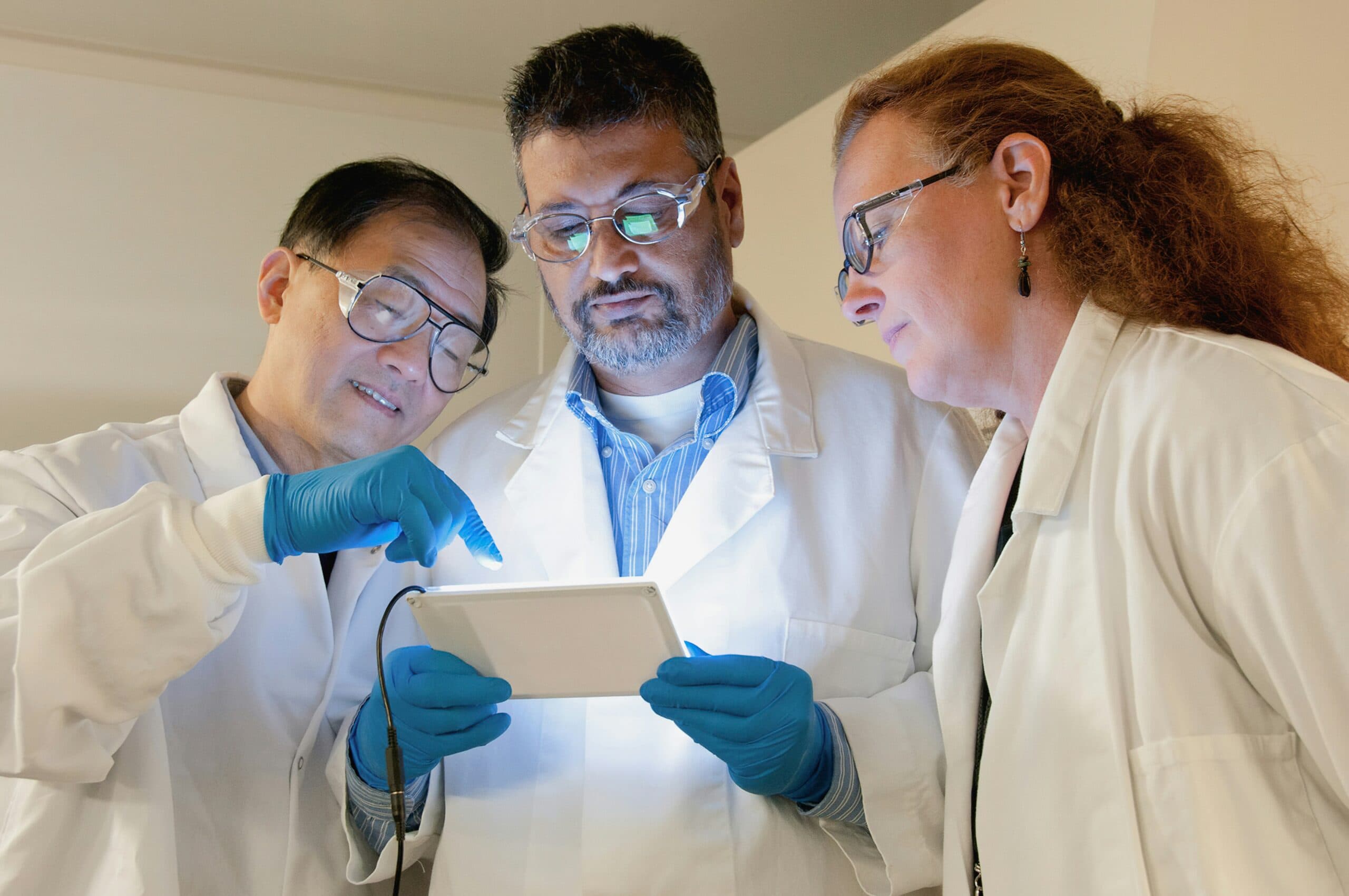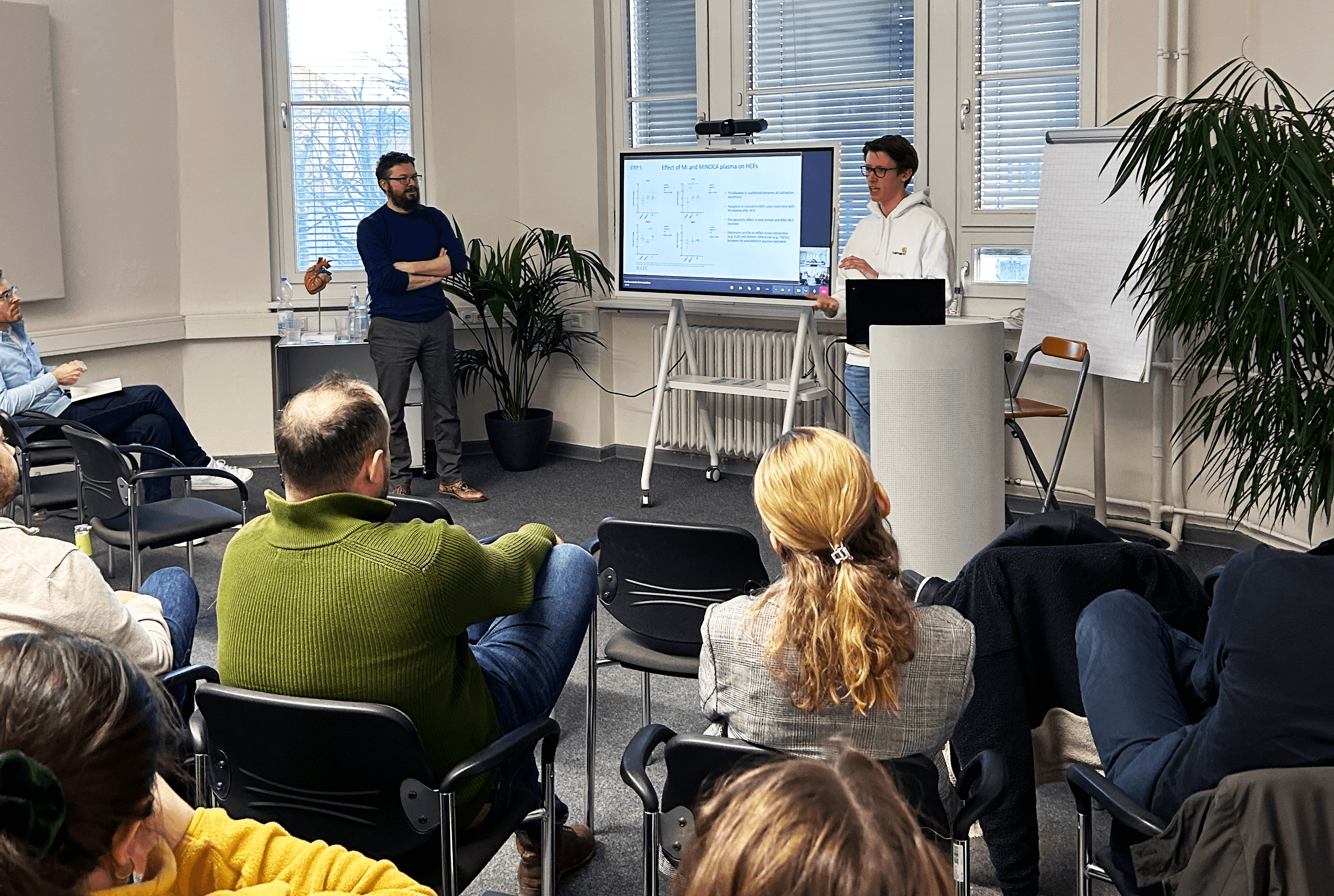Her scientific presentation focused on image-based characterization of anatomical and functional vascular properties. Her team has developed innovative software trained on existing patient data, enabling the extraction of valuable information from MRI scans with a single click. This includes data on blood flow and the forces acting on the aortic wall. During the subsequent discussion, there was a lively exchange about how this technology could further enhance DHZC’s expertise in TAVI procedures.
Hinrich Rahlfs, a PhD candidate in Prof. Hennemuth’s research group, also presented his work. His focus is on developing an AI-based model for the automatic segmentation and quantitative assessment of the carotid vessel wall in MRI images. Given that atherosclerotic plaques in the carotid artery pose a major stroke risk, his method could help reduce diagnostic effort and more accurately predict individual stroke risk in the future.
The evening not only featured inspiring presentations but also provided an excellent opportunity for in-depth professional exchange. Conversations continued over snacks and drinks, with new connections being made. Events like these once again demonstrate the importance of interdisciplinary dialogue for medical progress.
The next event will take place on May 15.


